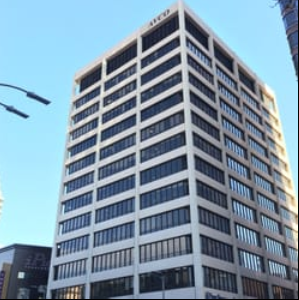A change in the methods Food and Drug Administration (FDA) inspectors follow when inspecting compounding pharmacies could result in drastic regulatory outcomes. Since August 1, 2016, FDA investigators have been making preliminary assessments during inspections of non-outsourcing facilities on whether the facility is compounding human drugs in accordance with certain provision of Section 503A of the federal Food, Drug & Cosmetic Act (FD&C), as amended by the Drug Quality and Security Act of 2013.
Section 503A creates a safe harbor to allow human drug compounders who are not registered with the FDA as outsourcing facilities to compound drugs without having to comply with certain sections of the FD&C Act, including compliance with its Current Good Manufacturing Practices (CGMP). To make use of the safe harbor, the compounding pharmacy must meet certain conditions:
- All drugs must be compounded by a licensed physician or pharmacist;
- Compounded drugs must be for an identified individual patient based on the receipt of a valid prescription; or
- Drugs must be prepared in anticipation of the receipt of such a prescription, provided there is a history between the prescriber and the pharmacist and other conditions are met.
For most compounders of human drugs, falling within the 503A safe harbor (or a sister safe harbor for outsourcing facilities created under Section 503B) is a necessity. The CGMPs would require a pharmacy to create and maintain a series of quality management systems, robust operating procedures, systems for detecting and investigating product quality deviations and reliable testing laboratories all designed for drug manufacturers. It is not economically feasible for a traditional compounding pharmacy to comply with those standards, which is why the safe harbors were created in the first place.
The change in FDA inspection procedures allows investigators to include deviations from the current good manufacturing practices when “it appears, based on the investigator’s preliminary assessment, that the firm compounds drugs that do not qualify for the exemptions.” So a compounding pharmacy, operating under the belief that it is exempt from CGMP requirements, can now suddenly find itself criticized for failing to adhere to those requirements during an FDA inspection.
One reason for this change appears to be the FDA’s perception that compounding pharmacies are not doing a good job of meeting the 503A exemptions. During the last decade the FDA has inspected hundreds of compounding pharmacies across the country, after having previously left the regulation of compounding pharmacies largely to the states.
The FDA increased its focus on compounding pharmacies following a 2012 fungal meningitis outbreak linked to more than 800 cases of infection and more than 60 deaths traced to adulterated drugs compounded at a New England pharmacy. According to the FDA, these inspections have shown “in the substantial majority of cases, inspected human drug compounders not registered as outsourcing facilities were compounding at least some of their drugs not in accordance with section 503A, subjecting their drugs to CGMP requirements.” The FDA proudly asserts that many compounders have recalled drug products or ceased sterile operations as a result of its inspections.
It appears likely that the FDA intends to use the failure to comply with good manufacturing practices standards as a tool to shut down pharmacies when, in the FDA’s eyes, the pharmacy is not taking seriously the steps required to remain within the section 503A safe harbor. Following an inspection, the FDA will conduct a more thorough review of the pharmacy’s compliance with federal law, and “when the FDA’s more thorough post-inspection review … reveals that a facility fails to produce drugs in accordance with the conditions of section 503A, the FDA intends to consider citing CGMP violations in any regulatory action it decides to pursue.”
In other words, if a pharmacy fails to strictly adhere to the safe harbor exemption criteria, the FDA reserves the right to cite you for having failed to follow its current good manufacturing practices. Under such circumstances, the FDA can seize drugs it considers to be adulterated and seek an injunction restraining the facility from violating CGMP standards. Because it will not be practical for most compounding facilities to quickly adopt systems that meet CGMP standards, the FDA may force any pharmacy the FDA determines is not in compliance with the 503A to either contest that FDA’s determination through the legal process or cease compounding drugs.
FDA inspections of compounding pharmacies are increasing and could be a precursor to stepped up regulatory enforcement actions when the FDA believes a pharmacy is not following the rules.
The FDA has released several draft guidance statements for public comment this year. In April, the FDA released draft guidance documents concerning the prescription drug requirement under Section 503A, hospital and health compounding and facility definition under Section 503B. In July, the FDA issued two draft guidance documents related to the compounding of drugs that are essentially copies of commercially available drugs. In August, the FDA issued draft guidance for unsanitary conditions at compounding facilities. These draft guidance documents, when finalized, will represent the current thinking of the FDA.
In light of these announcements, every compounding pharmacy not registered as an outsourcing facility should regularly evaluate its compliance with the conditions for exemption under Section 503A and take corrective action if necessary to meet those conditions. The consequences of an assessment that the pharmacy is not in compliance could be catastrophic.
A full text of the FDA’s announcement of inspection changes can be found here: http://www.fda.gov/downloads/Drugs/GuidanceComplianceRegulatoryInformation/PharmacyCompounding/UCM510684.pdf .

